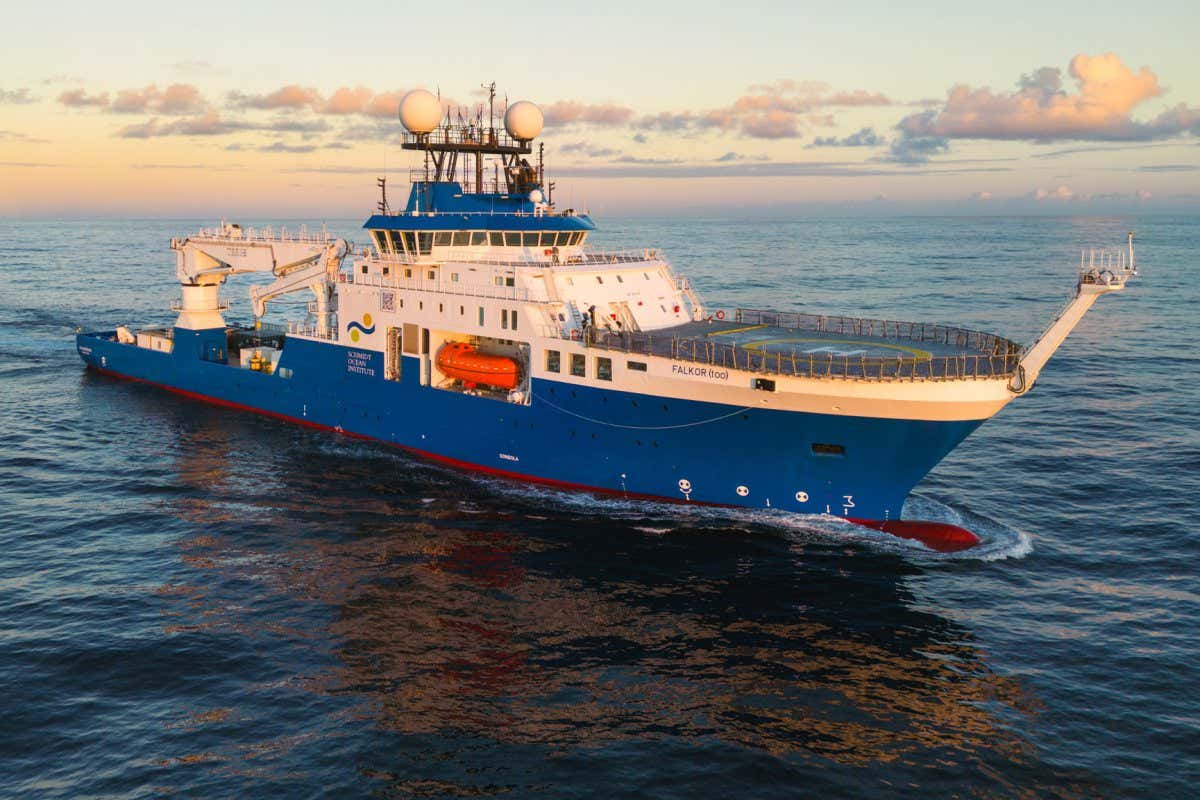Hydrothermal Vents: Research Ship Seeks Life in the Deep Ocean's Extreme Environment
A research vessel embarks on a groundbreaking expedition to explore hydrothermal vents, seeking clues to the origins of life and the potential for extraterrestrial life.
The deep ocean, a realm of perpetual darkness and crushing pressure, harbors some of Earth's most fascinating and least understood ecosystems: hydrothermal vents. These underwater geysers, spewing superheated, mineral-rich water from the ocean floor, support unique and thriving communities of life completely independent of sunlight. A team of scientists aboard the research vessel Atlantis, is currently undertaking a crucial mission to unravel the mysteries of these extreme environments, with implications far beyond our planet.
Uncovering the Secrets of Hydrothermal Vents
Hydrothermal vents are formed where tectonic plates meet, allowing seawater to seep into the Earth's crust, where it is heated by magma. This superheated water, rich in dissolved minerals, then erupts back into the ocean, creating a dramatic and chemically diverse environment. What makes these vents particularly intriguing is the presence of chemosynthetic organisms. Unlike plants, which rely on photosynthesis, these organisms use chemicals from the vent fluids to create energy, forming the base of a unique food web.
This research expedition focuses on several key areas:
- Biodiversity Assessment: The team aims to catalog the diverse array of life forms found around hydrothermal vents, including tube worms, giant clams, and extremophile bacteria. This involves sophisticated underwater robotics and sampling techniques.
- Chemosynthesis Research: Scientists will study the intricate processes of chemosynthesis, investigating the biochemical mechanisms used by these organisms to thrive in such extreme conditions. Understanding these processes could revolutionize our understanding of metabolic pathways.
- Origins of Life: The unique conditions of hydrothermal vents are thought by many to resemble early Earth, suggesting they could provide clues to the origins of life itself. Researchers are looking for evidence of early life forms or precursors.
- Astrobiological Implications: The existence of life in such extreme environments on Earth raises exciting possibilities about the potential for life on other planets, particularly those with subsurface oceans, like Europa (Jupiter's moon) and Enceladus (Saturn's moon).
The Atlantis Expedition: Technology and Challenges
The Atlantis expedition is equipped with state-of-the-art technology, including:
- Remotely Operated Vehicles (ROVs): These underwater robots allow scientists to explore the vent sites without the need for human divers, enabling access to the deepest and most dangerous areas.
- Autonomous Underwater Vehicles (AUVs): These unmanned vehicles can survey vast areas of the ocean floor, mapping the vent fields and collecting environmental data.
- Advanced Sampling Equipment: Specialized tools allow researchers to collect samples of vent fluids, organisms, and sediments for detailed analysis back in the laboratory.
However, exploring hydrothermal vents presents significant challenges:
- Extreme Conditions: The high pressure, temperature, and corrosive nature of the vent fluids make exploration extremely difficult.
- Remote Locations: Hydrothermal vents are typically found in remote and deep ocean areas, requiring specialized vessels and logistics.
- Technological Limitations: Despite advancements in technology, exploring these environments remains a challenging task, requiring constant innovation and adaptation.
Implications for the Future
The findings from this expedition will have profound implications for our understanding of life on Earth and the possibility of life beyond. The research could lead to breakthroughs in biotechnology, medicine, and our search for extraterrestrial life. Understanding extremophiles and their adaptations could provide insights into developing new technologies and materials that can withstand extreme conditions.
The Atlantis expedition is a testament to human curiosity and our relentless pursuit of knowledge. By venturing into the deepest, darkest corners of our planet, we may unlock secrets that redefine our understanding of life itself. Stay tuned for updates on this groundbreaking research as it unfolds.
Keywords: Hydrothermal vents, deep sea exploration, chemosynthesis, extremophiles, origins of life, astrobiology, research vessel Atlantis, deep ocean, underwater exploration, scientific expedition, biodiversity, marine biology.

